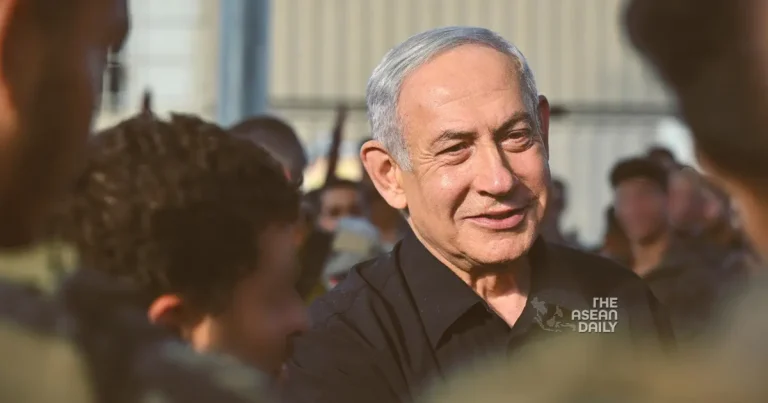17-12-2023 (JERUSALEM) Israeli Prime Minister Benjamin Netanyahu hinted on December 16th that new negotiations mediated by Qatar were underway to secure the release of hostages held by Hamas in Gaza. This confirmation followed reports of a meeting between Israel’s lead negotiator, Mossad head David Barnea, and Qatari Prime Minister Sheikh Mohammed bin Abdulrahman Al Thani in Europe on December 15th.
During a news conference, Netanyahu avoided directly addressing the question about the meeting but acknowledged that he had given instructions to the negotiating team. He expressed Israel’s criticisms of Qatar but emphasized their current focus on recovering the hostages.
The news about the negotiations emerged after the Israeli military disclosed that three hostages, who had escaped from their captors in Gaza and approached Israeli troops with a white flag, were mistakenly killed on December 15th.
Netanyahu refrained from providing specific details about the talks, stating that revealing calculations to Hamas or the world would be a mistake. He emphasized that the negotiations would not be discussed in detail.
The Gaza conflict, triggered by Hamas’ killing and kidnapping incidents in southern Israel in October, has raised concerns among regional and global powers, particularly due to the escalating civilian casualties.
While Israel has vowed to dismantle Hamas, it also seeks to secure the release of hostages held by the Iranian-backed Islamist group.
Netanyahu pledged to maintain strong military pressure on Hamas in Gaza, and he based his instructions to the negotiating team on this persistent pressure.
Mossad chief David Barnea’s meeting with Sheikh Al Thani in Europe marked a significant development in the Gaza conflict mediation process, according to a source cited by Reuters. Egypt also suggested that Israel appeared to be more receptive to a new agreement with Hamas.
Qatar and Egypt previously acted as mediators between Israel and Hamas, leading to a week-long ceasefire in November. During that period, Hamas released over 100 women, children, and foreigners in exchange for the freedom of 240 Palestinian women and teenagers from Israeli prisons.
Axios reported that the December 15th meeting between Barnea and Sheikh Al Thani was the first since the November ceasefire. A Reuters source stated that Barnea returned to Israel on December 16th to brief Netanyahu about the meeting.
Egyptian security sources revealed that Israeli officials, in their discussions with mediators, seemed more willing to consider a fresh ceasefire in Gaza and the release of Palestinian prisoners in exchange for the hostages’ return. The sources noted a change in Israel’s stance on certain points that it had previously rejected.
The Egyptian sources did not provide further details, and there was no immediate response from Netanyahu’s government spokespersons regarding Egypt’s assessment.
Israel believes that more than 20 of the 130 hostages still held in Gaza may have died. Families of the hostages organized a rally on December 16th, urging the Israeli government to consider releasing senior Palestinian militants from prison as part of any potential swap deal.
“The Israeli government needs to be active. They need to put an offer on the table, including prisoners with blood on their hands, and put the best offer on the table to get the hostages back alive,” said Ruby Chen, father of 19-year-old hostage Itay.
Hamas’ exiled leader, Osama Hamdan, stated that the group would only release captive soldiers in Gaza when the “entire aggression is stopped.” He emphasized the necessity of a negotiated agreement based on the resistance’s conditions.
In an apparent attempt to influence Israeli public opinion, Hamas released a video showing slain hostages, concluding with a Hebrew warning: “Time is running out.”




